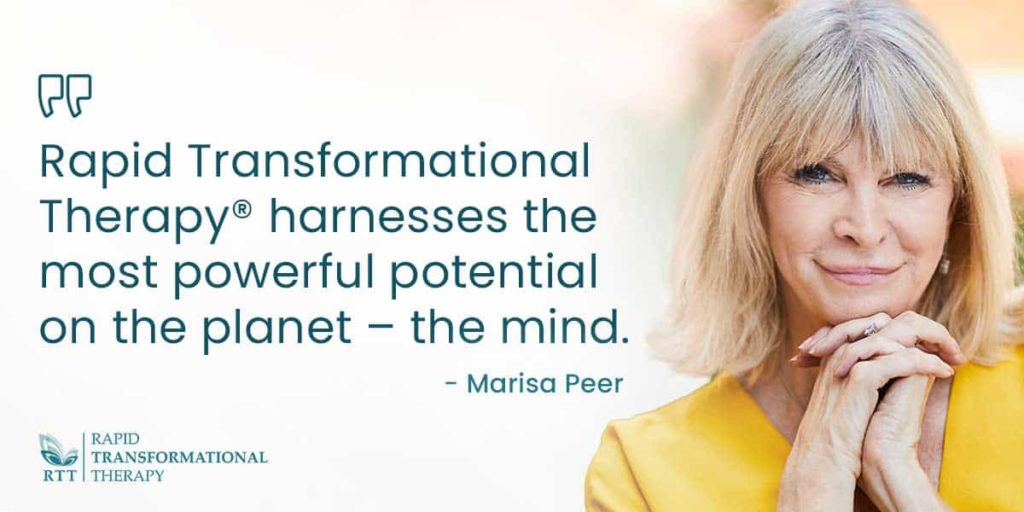Have you ever clashed with someone and asked yourself what went wrong? Did you both start blaming each other and find the topic of emotional maturity came up? Maybe you or the other person had less of it than expected.
You probably know someone who always has the right thing to say, who knows how to approach a difficult conversation and how to support others emotionally. On the other hand, there’s always “that someone” who tends to act on their impulses, has difficulty entertaining other perspectives, and easily gets defensive.
These differences in behavior are based on different levels of emotional maturity. Understanding emotional maturity will help you decide what you can expect of others. It will also help you understand what other people may expect of you. Whether you’re struggling with emotional maturity yourself or you want to know how to support someone else’s efforts to become more emotionally mature, there are practical steps you can take to get there. We can all develop the character to become who we want to be.
We’ll cover:
But first, what exactly is emotional maturity?
What Is Emotional Maturity?

Psychologists tend to define emotional maturity in terms of a person’s appropriate responses to situations. At its most basic, you might think of emotional maturity as proof you’re capable of behavior appropriate for your age.
The stages of emotional development in early childhood are most recognizable and explicit. Beyond adolescence, however, these stages become less obvious. Yet, as we grow through life, we continue mastering our impulses and adapting our behavior to novel situations. This allows us to reach new levels of emotional maturity.
In adulthood, the definition of emotionally mature behavior depends on what seems normal for your age and social context. It depends on what you think of as virtuous, developed, intelligent, sociable, happy, and healthy behavior.
Emotional maturity is a two-way street in most aspects of your social life. At any given moment, you may need to deal with your own emotional impulses while “reading” and responding to the emotions of others.
Emotionally mature people are able to interpret the emotional input they get from others’ words, actions, and attitudes. Further, they are able to regulate their emotions and decide how they want to respond to a situation.
For example, imagine a 40-year-old parent and their teenage child having an argument. Each will behave differently.
Verbally and non-verbally, the teenager might express a stream of emotions. They may even have serious outbursts while their parent would probably be more collected and centered.
Even though the parent may be frustrated with the teenager’s behavior, they don’t expect the teenager to act as emotionally mature as an adult would. That’s why, as a parent, they would try to be more patient and understanding toward the child.
When do you reach emotional maturity?
The older we get, the more we tend to mature emotionally. However, if you expect everyone at a specific age to be of a certain level of emotional maturity, you’re bound to be disappointed.
Why is that?
That’s because, in adulthood, emotional maturity is not a question of progressing through stages in the same way physical growth is. It’s more about developing aspects of your personality as you deal with different situations in life.
When gauging the level of emotional maturity in yourself or others, it’s important to take into account other factors aside from just age. Upbringing, cultural background, novel experiences, and the ability to reflect on decisions you’ve made can all play a role.
The fact of the matter is, life can throw at you a vast array of experiences and situations that define whether your emotional maturity develops appropriately for your age or leaves you emotionally stunted as an adult.
In other words, the development of emotional maturity is not a linear process.
If the topic of emotional maturity has been on your mind and you often feel like it’s impossible to manage your emotions or react appropriately to various situations, there might be deeper issues you need to address. Connect with an RTT® therapist who can help you resolve these issues and accelerate your progress toward greater emotional maturity.
Rapid Transformational Therapy® (RTT®) is a revolutionary therapeutic modality that combines the best of psychotherapy, hypnotherapy, neuro-linguistic programming (NLP), and cognitive behavioral therapy (CBT), and is known to bring results in as little as one to three sessions.
What Are the Signs of Emotional Maturity?

You might be asking: What are the characteristics of an emotionally mature person? Here’s a list of five important signs of emotional maturity.
1. Communicating your feelings
Communicating how you feel is key in so many situations. When you’re feeling tension with somebody, it’s up to you to let them know how the situation affects you.
An emotionally mature person is able to look at the situation objectively: where does the feeling of tension come from? Is it about the other person’s inappropriate behavior or their own triggered emotions?
An emotionally mature person is able to understand their role in a situation, approach the other person, hear them out, and talk it through.
Additionally, the masterful use of communication skills and style is also important to convey one’s message. Body language, tone of voice, and facial expression, as well as the particular words you use all play a role in explaining how you feel.
In the same situation, an emotionally immature person could start an argument and become passive-aggressive or withdraw and pretend everything’s okay when it’s not.
When someone hurts your feelings, do you have the maturity to explain how their behavior affects you?
2. Remaining calm
An emotionally mature person knows the value of being able to remain diplomatic and calm in any situation.
In times of conflict, emotionally mature people know it wouldn’t be productive to go into fits of anger by assuming the worst about other people’s motives. Instead, they’re able to regulate their own emotions well enough to remain calm in any circumstance.
Remaining calm is especially valuable in sensitive situations. When you’re calm, you’re able to not jump to conclusions or assume anything that is not actually true. It also helps you understand any situation better and be more sound in your decision-making.
Practicing mindfulness is one effective way to manage your emotions better. Mindfulness is the practice and skill of being fully aware of what is happening in the present moment: externally in your environment as well as internally within yourself.
This practice can help you find a more objective view of reality. It can give you the opportunity to proactively respond to a situation as opposed to reacting to it.
3. Acknowledging environments
Imagine being stuck in traffic on your way to work when suddenly someone cuts you off.
How do you react? Do you get furious and fill up with anger?
Like many people, you might think the worst about the person who cut you off or how the situation is not fair to you.
Now think: if you knew the person who cut you off was rushing to see a loved one in the emergency ward, how would you react then?
Would you still be angry at them or feel other emotions?
Most of us tend to judge ourselves based on our intentions while judging others based on their behavior.
An emotionally mature person understands the importance of acknowledging the environment and context (the bigger picture) in every given situation.
When it comes to responding appropriately to a situation, context matters more than personal traits.
The person who cuts you off in traffic deserves the benefit of the doubt. You don’t need to think they’re simply a mean person. They may have their own reasons for being in a hurry, or the move they made could have been unintentional.
In a similar situation, are you able to admit to yourself that you don’t have the full picture, giving another the benefit of the doubt?
4. Showing vulnerability

It can be very difficult to open up and show vulnerability. Especially when you identify as a person who always “has it all together.”
Many of us are afraid to be perceived as weak. We’re afraid to be taken advantage of or afraid of getting hurt. That’s why we put on masks of toughness and pretend that everything is okay even when we’re scared or hurting.
The truth is, nobody’s perfect. We all make mistakes, and we all have things we struggle with.
Emotionally mature people know that showing vulnerability is not a sign of weakness but a sign of strength. Only a strong and courageous person is able to open their heart to others and share their deeply hidden fears, doubts and insecurities.
Getting close to anyone automatically means leaving the door open to the possibility of getting hurt.
Emotional maturity allows you to find the willingness to let your guard down. Only then can you open up in order to build trust and deepen your intimacy with loved ones.
When you show vulnerability, you invite another person to show care, concern, and empathy toward you. This can open the door to building a responsible, healthy, and mutually respectful relationship.
When you experience emotional pain, you don’t have to mask it all the time. Can you find a way to let a friend know about what you’re going through?
5. Open-mindedness
Emotionally mature people are confident. They know who they are, what they stand for, and what they believe in.
Because of this confidence, they’re able to listen to other points of view while keeping an open mind.
Keeping an open mind means you don’t feel threatened when a point of view contradicts your own. Rather, your emotional maturity allows you to be open to exploring, learning, and possibly adopting a different—even better—perspective.
This can help when there’s a real problem that needs to be solved.
How Do You Develop Emotional Maturity?

While there may be different paths to learning how to be mature, one thing is clear: this is an area where nobody’s perfect. Over time, however, we can intentionally work on developing emotional maturity by learning to better understand and regulate ourselves.
Below are three ways that can help develop your emotional maturity.
Step 1. Take responsibility
Have you ever held a position stubbornly just because you didn’t want to admit you were wrong? The reality of being wrong is sometimes hard to face. However, a more mature—and better—way to deal with this situation is by taking responsibility and actually admitting it.
A little responsibility can go a long way. Taking responsibility for your thoughts, words, actions, and the decisions you’ve made in life can fast-forward your emotional growth.
For example, if you simply ignore that you were wrong during an argument and quietly sweep it under the rug, you can never learn or grow from your mistake.
However, holding yourself accountable by recognizing and admitting your mistake is the first step to growth. You now have a chance to evaluate your behavior and make better decisions for the future. Moreover, when you find yourself in the same situation again, you won’t make the same mistake twice.
When it comes to taking responsibility for your actions and your words in interactions with others, you’ll be able to reflect on your viewpoint and not act on impulse when it’s already a delicate situation.
Next time you’re in a heated argument and you catch yourself tightly holding on to your position, take a moment and ask yourself:
“How do I know I’m 100% right?”
“Do I have my facts straight, or do I just not want to be wrong?”
Acknowledge what is true for you, and be courageous to act accordingly.
Step 2. Understand your triggers
There may be people and events that trigger some of your stronger emotional responses. Many of us prefer to avoid such unpleasantness. However, when you experience a strong emotion, digging deeper can lead you to find its root cause.
Fears, disempowering beliefs, insecurities—everyone has difficulty dealing with something. However, by addressing these issues, we are able to reach new horizons of emotional maturity.
When something triggers you, ask yourself:
- What is it about the situation that brings out negative emotions?
- What emotions are you experiencing in that moment? Try to deconstruct and name every emotion.
- Close your eyes, breathe in, and think back to when you experienced these emotions for the first time.
You might be surprised by what you learn about yourself.
Step 3. Work with a professional
Developing emotional maturity doesn’t have to be hard. If you’re finding trouble letting go of unhelpful thoughts and behaviors or dealing with strong undesirable emotions, help is just around the corner.
Founder of Rapid Transformational Therapy® (RTT®) Marisa Peer has spent more than 30 years helping thousands of people, including Olympic athletes, Hollywood superstars, and high-profile CEOs, to let go of unhelpful thought patterns and emotional triggers.
She packed her knowledge into her Rapid Transformational Therapy® program that has been taught to thousands of people around the world.
Handpicked and trained by Marisa Peer herself, each of these RTT® therapists specialize in a particular area of expertise: from childhood trauma, fears and phobias, undesirable behaviors, anxiety, and overthinking to rediscovering self-worth and developing healthy relationship skills.
Connect with an RTT® specialist therapist today and you will be well on your way to developing emotional maturity.




